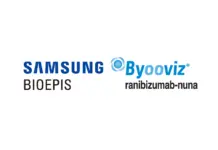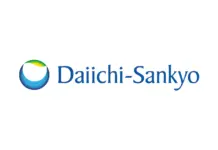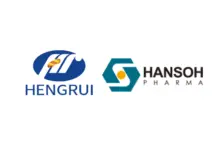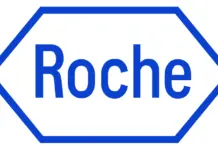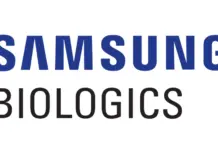Clinical trial material packaging represents far more than logistical necessity—it directly impacts investigational drug integrity, patient safety, data quality, and trial outcomes. Contemporary CTM packaging innovations reflect the extraordinary complexity inherent in modern clinical studies, which increasingly involve complex biologics, ultra-cold storage requirements, decentralized patient populations, multi-arm adaptive designs, and global regulatory variations. The global pharmaceutical packaging market continues expanding as companies systematically upgrade capabilities to accommodate emerging demands for sophisticated, intelligent packaging solutions that enhance trial efficiency while maintaining uncompromising product integrity.
Temperature-Controlled Packaging for Advanced Therapies
Ultra-cold storage requirements represent one of the most challenging innovations driving CTM packaging advancement. Cell and gene therapies, mRNA-based medicines, and other emerging modalities frequently require storage at -60°C or below—conditions that create extraordinary challenges for packaging material compatibility, adhesive performance, and labeling durability. Traditional packaging systems designed for ambient or refrigerated storage prove inadequate for these extreme temperature environments.
Advanced CTM packaging solutions employ specialized materials selected specifically for ultra-cold performance. Phase change materials (PCMs)—sophisticated systems of salt, paraffin, and other substances suspended in solid matrices—provide precise temperature control throughout distribution, maintaining investigational drugs within target temperature ranges despite external environmental extremes. These systems represent substantial advancement from early-generation expanded polystyrene packaging that frequently resulted in temperature excursions and product loss.
Active temperature-controlled systems—including technologies like Envirotainer and Unicooler units—represent another critical innovation for ultra-cold CTM packaging. These systems actively generate and maintain cold conditions throughout shipment, eliminating dependence on passive thermal properties and providing sophisticated real-time temperature monitoring. Pharmaceutical companies managing high-value investigational drugs benefit substantially from active systems’ ability to maintain absolute temperature control across challenging distribution environments, including extreme climates, extended transit periods, and complex customs clearance procedures.
Labeling at ultra-cold temperatures presents extraordinary technical challenges. Most conventional adhesives lose tackiness at cryogenic temperatures, creating substantial risk of label separation during freeze-thaw cycles or long-term ultra-cold storage. Advanced CTM packaging solutions employ specialized adhesives formulated specifically for ultra-cold environments, mechanical label attachment systems, and protective coverings that ensure labeling durability throughout investigational drug storage and distribution. These innovations prove particularly critical for complex packaging involving vials or pre-filled syringes where label detachment could compromise package integrity or regulatory compliance.
Serialization Upgrades and Track-and-Trace Integration
Serialization technologies have evolved from simple compliance requirements into sophisticated supply chain intelligence systems embedded within CTM packaging. Each investigational drug unit now includes unique identifiers capturing product, batch, expiration, and distribution information in both human-readable and two-dimensional barcode formats. These codes enable automated scanning, real-time tracking, and rapid recall management should safety or quality concerns emerge.
Advanced serialization systems integrate optical character recognition, machine vision technologies, and blockchain verification systems that create tamper-evident, counterfeit-proof packaging. For investigational drugs with high street value or those subject to diversion risks, these advanced serialization capabilities provide substantial protection while creating auditable records documenting legitimate distribution pathways. Regulatory authorities increasingly value serialization data as evidence of proper supply chain handling and product authenticity.
The integration of serialization with track-and-trace systems creates comprehensive supply chain visibility from manufacturing through patient administration. Pharmaceutical companies can monitor investigational drug location, custody transfers, storage conditions, and temperature excursions throughout global distribution. Should problems emerge—such as temperature deviations affecting product stability or shipments lost during customs clearance—serialization data enables rapid identification, location, and response. This capability substantially reduces supply chain losses and enables proactive risk mitigation.
Adaptive Trial Kit Design and Flexibility
Contemporary CTM packaging increasingly incorporates adaptive design principles that anticipate protocol modifications and accommodate trial changes with minimal disruption. Rather than designing fixed packaging configurations requiring complete re-packaging when protocols change, adaptive kit design employs modular components, standardized packaging architecture, and flexible internal organization that permits rapid adaptation to emerging trial requirements.
Examples of adaptive packaging features include moveable dividers within kits, modular compartments accommodating different dosage configurations, and flexible labeling systems supporting rapid text updates. When protocol amendments affect dosage regimens, study arms, or inclusion criteria, adaptive packaging enables rapid modification with minimal waste or delay. This flexibility proves particularly valuable in decentralized, patient-centric trials where participant numbers and enrollment patterns frequently diverge from initial projections.
Smart Packaging and Intelligent Monitoring Systems
Real-time monitoring technologies integrated within CTM packaging represent an emerging frontier transforming supply chain visibility and product integrity assurance. Temperature monitors embedded within shipments or integrated into packaging systems provide continuous measurement of thermal conditions, enabling documentation of proper storage throughout transit. Should temperature excursions occur, these devices capture precise timing, magnitude, and duration data, enabling post-hoc assessment of potential product impact.
Humidity indicators represent another important CTM packaging innovation, particularly for products sensitive to moisture exposure. These indicators provide visual evidence of moisture exposure, enabling rapid identification of compromised shipments and prevention of damaged investigational drugs reaching trial sites. Combined with sophisticated packaging design that minimizes moisture ingress through desiccant packs and moisture-barrier materials, these systems substantially enhance product protection in diverse geographic environments with varying humidity conditions.
Internet of Things sensors integrated within advanced packaging systems provide comprehensive real-time visibility into package location, orientation, temperature, humidity, and pressure throughout distribution. These sensors generate continuous data streams enabling pharmaceutical companies to monitor investigational drug environmental exposure, predict potential product degradation, and implement rapid contingency responses should concerning trends emerge. This comprehensive data collection supports post-hoc analysis of packaging system performance, enabling continuous improvement in future trials.
Multi-Arm and Decentralized Trial Support
Emerging trial designs—particularly multi-arm adaptive studies and decentralized models enabling home-based patient participation—demand unprecedented CTM packaging sophistication. Multi-arm trials frequently allocate different investigational drug doses or formulations to different patient populations, necessitating complex packaging strategies that maintain blinding, prevent accidental cross-allocation, and clearly distinguish distinct treatment assignments.
Decentralized trials delivering investigational drugs directly to patient homes require packaging suitable for non-professional handling, self-administration by patients, and storage in uncontrolled residential environments. Advanced CTM packaging for decentralized trials incorporates enhanced user guidance, simplified opening mechanisms, clear dose identification, and residual product containment systems ensuring safe disposal. These innovations substantially enhance patient safety and trial compliance in decentralized settings.
Serialization and Adaptive Packaging for Blinded Studies
Blinded clinical trials require extraordinary CTM packaging sophistication to maintain treatment masking while simultaneously enabling trial management and regulatory compliance. Advanced packaging solutions employ over-encapsulation, secondary packaging covers, and specialized labeling techniques that prevent inadvertent treatment revelation while maintaining necessary regulatory and tracking information. These solutions require careful balance between blinding integrity and practical functionality—a challenge that sophisticated packaging engineers address through creative design and rigorous validation testing.
Comparator drugs employed in blinded studies frequently arrive in commercial packaging with treatment-revealing branding. Advanced CTM packaging solutions employ sophisticated over-encapsulation technologies that conceal original commercial packaging while preserving product integrity. This capability enables blinded comparative trials while eliminating need for costly, time-consuming remanufacturing of existing commercial products.
Sustainability and Environmental Stewardship
Contemporary CTM packaging innovations increasingly incorporate sustainability principles alongside technical performance requirements. Manufacturers are developing recyclable and compostable packaging materials that maintain performance standards while reducing environmental impact. These innovations enable pharmaceutical companies to advance sustainability commitments without compromising investigational drug protection.
Looking Forward: Advanced Solutions and Continuous Innovation
CTM packaging innovations represent continuous advancement in response to evolving trial demands, emerging therapeutic modalities, and increasing complexity inherent in modern clinical research. Pharmaceutical companies successfully implementing sophisticated packaging strategies—incorporating temperature control, serialization, adaptive design, smart monitoring, and sustainability principles—gain substantial competitive advantage through enhanced trial efficiency, improved supply chain resilience, and reduced investigational drug loss. As clinical trial complexity intensifies and decentralized trial models expand, advanced CTM packaging innovations will remain critical differentiators enabling trial success and accelerated time-to-market achievement








